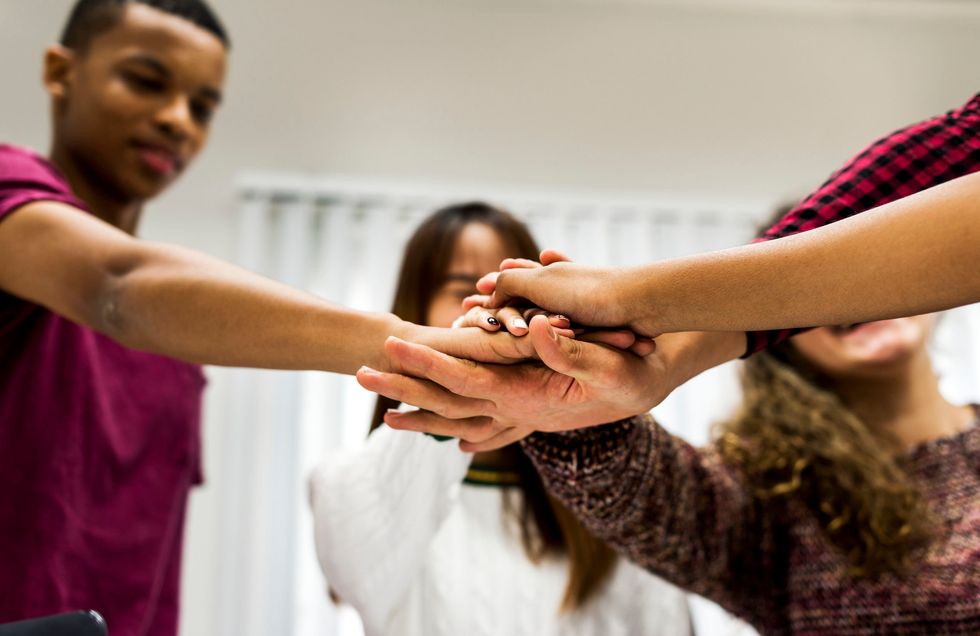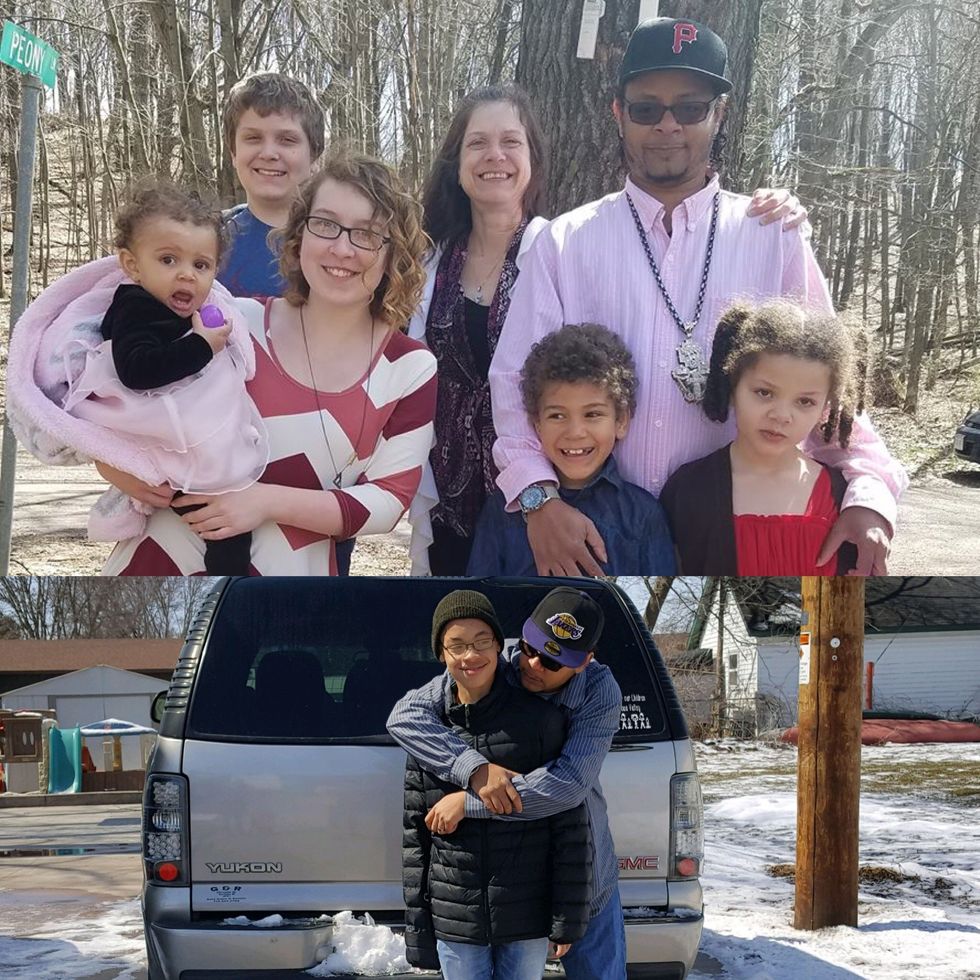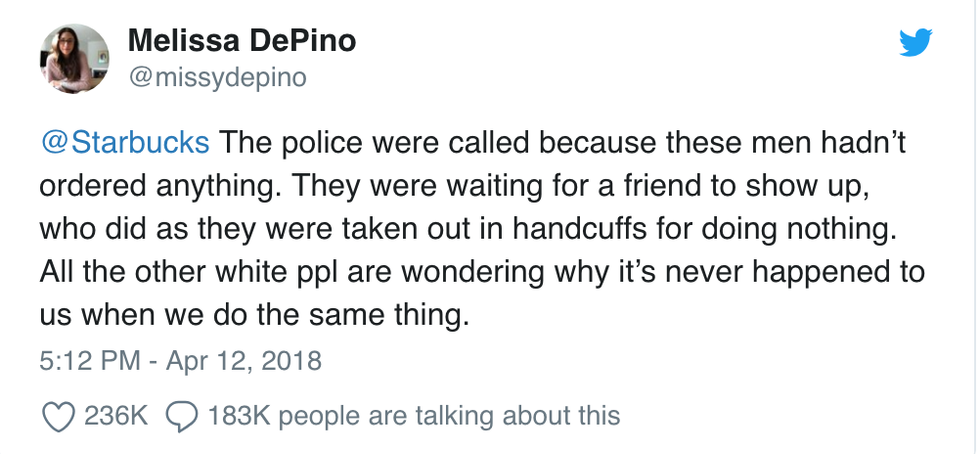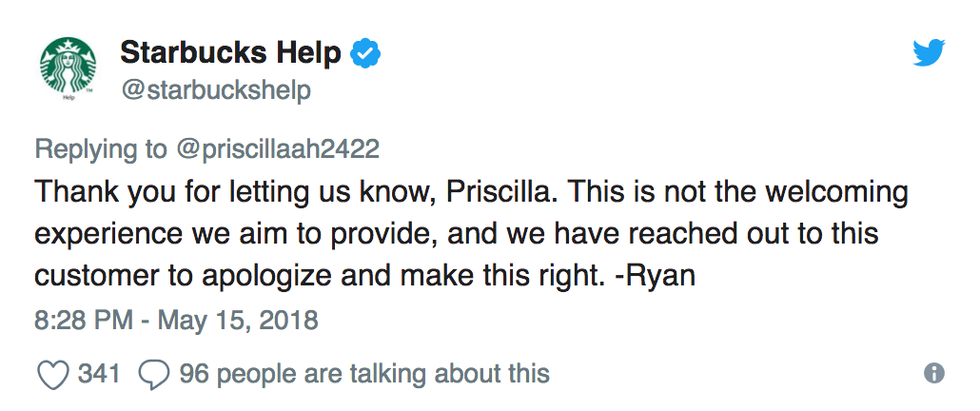I Took An Intercultural/Interracial Course And Here's What It Taught Me
I've never been more aware of my skin color than after taking this course.
Due to my communication major, I decided to take this course which deals with intercultural and interracial communication. I did not really know what I was getting into. I thought we would talk more about diversity and its positive effects, but we spoke about more than just that.
The course was intriguing and brutally honest about the ways other races and cultures are looked at by dominant and non-dominant races. This course delves deep into the lives of Caucasian people and people of color. We watched multiple videos and documentaries of people suffering from discrimination, racism, and hate-crimes. This is a large part of the course and it's one of the reasons I began to fall in love with it.
As a Peruvian-American woman, I have encountered my fair share of racism and prejudice about my culture, but this class gave me an opportunity to really understand the extent of which other races and culture are faced with similar animosity. There were a couple of videos that really shocked me, but they became important to me.
One of the videos we watched was a 1991 segment of Primetime with Diane Sawyer. It presented two middle-class men that were friends, one man was Caucasian, the other was African-American. The segment demonstrated the racial bias presented in St. Louis, MO. Both men were told to do the same things and a hidden camera caught real reactions of the people they both encountered.
Both men inquired about open positions at businesses, purchasing a car, and vacant apartments. To say the Caucasian man was treated better than the African-American is an understatement. At one point, the African-American is walking in a residential area on the south side of town and someone driving past in their car leans out the window to say, "a little far south ain't it?" The north area of St. Louis at this time was a predominantly African-American area of residence.
This specific example may have happened almost 30 years ago, but it doesn't mean that it doesn't happen anymore. In the past 10 years, we've seen an increase in hate-crimes against black people, against Hispanic people, against middle eastern people, etc. The Black Lives Matter movement, the caravan situation, the Muslim ban, etc. These moments are not decreasing, they are a constant reminder that there is discrimination, prejudice, and hatred toward these races.
A documentary we watched recently was called "The Color of Fear," a film by Lee Mun Wah, an internationally renowned Chinese-American documentary filmmaker, author, educator, and master diversity trainer. This documentary features nine men of different races attending a workshop about race.
Each man speaks about his experiences and thoughts about and on racism. This was an incredible film that has touched my heart. I felt as though I could see the anger, pain, and misunderstanding of something as important as race. The history behind each of them is different and it showed the common misunderstandings that occur between multiple races. This documentary was filmed in 1994, but the conversation and topic remain relevant.
This class has defined racism and has helped me not only identify it but understand what we as human beings should be doing to combat racism and change the world. It's hard to change people, that's for sure, but the younger generation has the time to start heading in the right direction. This class has emphasized the importance of understanding modern racism (subtle, indirect racism) so that we can collectively begin to put an end to it.
I apologize if any of this has offended anyone, but I cannot be silent about this situation. It affects me, people like me, and people unlike me.





 Top: Sister, brother, me, mother, stepfather, and brother and sister. Bottom: Brother and stepfather.
Top: Sister, brother, me, mother, stepfather, and brother and sister. Bottom: Brother and stepfather.






















If Someone Checks Your Racism You're Not The Victim Here, So Here Are Some Tips For Not Acting Like It Either
The way you react to being accused of racism can have a bigger affect than the ignorance in the first place, so here's how to respond in those situations.
Psychology Today defines a "Microaggression" as "everyday verbal, nonverbal, and environmental slights, snubs, or insults, whether intentional or unintentional, which communicate hostile, derogatory, or negative messages to target persons based solely upon their marginalized group membership." To put it more plainly, its anything discriminatory that isn't 100% over.
With that in mind, it may seem to some that literally, everything is off limits to joke about nowadays. While the '90s and early 2000s was full of fake acceptance cloaking heavily problematic stereotypes, assumptions, and misconceptions about marginalized groups, it's left us with a heavy "us vs. them" mentality, with "regular people" on one end and "snowflakes" on the other.
"Snowflake" is a relatively new term commonly employed by conservatives to mock the emerging atmosphere of political correctness, "safe spaces" and the uphill battle minorities face in pursuit of equal rights.
The reason for this, among other things, is the fact that the emerging adult community was raised in the above mentioned standards that were upheld in the '90s and early 2000s. Therefore, we're left with people who think they can, and should get away with anything so long as they aren't waving a Nazi flag or sporting white sheets over their heads.
Studies confirm that many people harbor unconscious racial biases, whether or not they would classify as a full-blown racist.The thoroughly depressing reality of that aside, that along with white guilt, or a sense of shame white people may experience considering the demographic's historical treatment of people of color and other minority peoples, can make racial issues exceptionally difficult to talk about.
With lack of communication comes inevitable ignorance of how a comment, action or opinion may be considered offensive to a marginalized person, leaving many social interactions with both parties angry, sad or even fearful from its outcome.
Ignorance is often not the explicit fault of the ignorant person. However, the problem with today's society is not solely ignorance, nor that people are too sensitive all of a sudden.
For the first time in the nation's history, the social climate allows minority people to be emboldened enough to call people out on their racism. This is a massive societal win for many marginalized groups who no longer have to stand in as a token for their demographic so corporations can meet their diversity quota.
Although, it was clearly not something the bulk of the nation was prepared for.
With the mixture of this newfound liberation for minority groups, an ignorance that has spanned centuries and how difficult people find it to communicate about racial issues, we have the perfect storm for someone to go on the defense instead of treating the accusation of racism as a learning experience.
Thankfully, the concepts behind responding in an appropriate way are pretty straight forward.
1. You Are Not The Victim Here.
There are too many people who get accused of saying something offensive, then immediately go on the defensive. This gets everyone absolutely nowhere.
It probably really sucks to feel like someone thinks you're a terrible person, especially when you didn't realize you were in the wrong. Considering America's history with racism, being singled out for contributing to that is going to bring up a lot of feelings. So naturally, people may turn to arguing and making excuses for the terrible thing they did or said.
The pro-level of this reaction is when a person points out something ignorant or discriminatory, then the accused starts crying.
This immediately takes the attention off of the victim and onto the offender, because the offender then needs to be consoled before any progress in the interaction is made.
Any of these reactions, or feeling that someone is being "mean" to you by checking your ignorance, is a product of white privilege. So, if you care about being a good ally to the marginalized section of our community, its best to save the crying or yelling as a last resort.
2. Apologize First.
Do not pass go, do not collect $200.
Apologizing first, even if you don't understand what you've done, keeps all doors of communication open so you can dig deeper into the situation a little more.
Even if you don't feel remorse—out of ignorance, stubbornness or skepticism—apologizing first acknowledges that they are a human that deserves respect which you've just violated somehow.
Here our pre-school days come in handy, as we can all do well to "treat other's like we want to be treated". Think on how you'd feel if someone disrespected you in the middle of your day, then that empathy should be applied to whomever you've hurt.
If the accused responds in any way besides this, the opportunity for fixing things is annihilated, and the hurt that you both are feeling has no chance of being relieved. Granted, after an apology has been issued and a conversation follows, you might still feel that you're in the right or feel bad in general. However, you still did your best to alleviate some of their discomforts, maintained the cordiality of the relationship and know how to avoid similar situations in the future.
3. Prove To Yourself And Them You're Not A Bad Person
I'm multiracial but look white as hell. I was ignorant as hell as a kid. I've been there where something you said offended when it was clearly not your intention. In fact, in the case of microaggressions, the intent is often not to offend.
So, now it's your job to do your best to prove to them and yourself that you're not a bad person.
The only way to accomplish this is by listening.
Listening to why they were offended, why its a problem and asking questions about the reasons behind it or how to avoid repeating the mistake in the future is the key to growing. And consequentially you might get to learn something that day, which everyone should be thankful for.
Facing these interactions humbly and with an open mind encouraged growth as well as learning, so even though you may feel like crap, this opportunity is definitely a good one.
4. Follow Through
After the badness has happened and been pointed out, an apology has been made and a conversation has been had, the effect of the situation should not end there.
If you're still a little unclear on the offense or want more information, take it upon yourself to watch a Ted Talk or two to keep the conversation going internally.
Then, it's important to actually apply what you've learned to your thoughts, words, and actions. Once it's been pointed out its much easier to identify discriminatory lines of thinking, reconsider previous opinions and even reevaluate how ignorance might be applied to other areas that you hadn't thought of.
If you feel they might still be upset, especially if they're someone you run into often or work with, a check in can go a long way, too. A simple "Hey, I just wanted to make sure you're still OK after the other day" can easy any resentment that might be lingering. Even if that still doesn't fix things, you know you've done everything in your power to make it right.
Even attempting to follow these steps can make all the difference in developing the quality of our interactions a safer society for everyone. Although this may seem like inconsequential in the grander scheme of things, change is truly inspired one baby step at a time, so don't knock it till you try it.